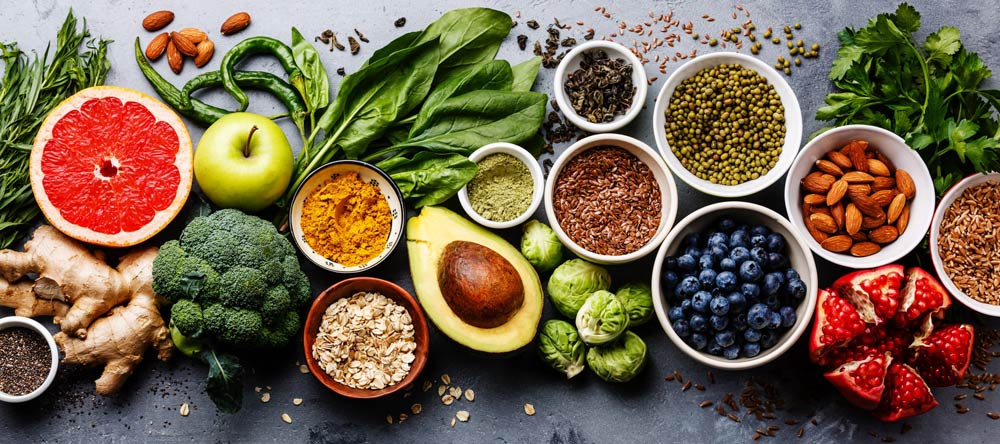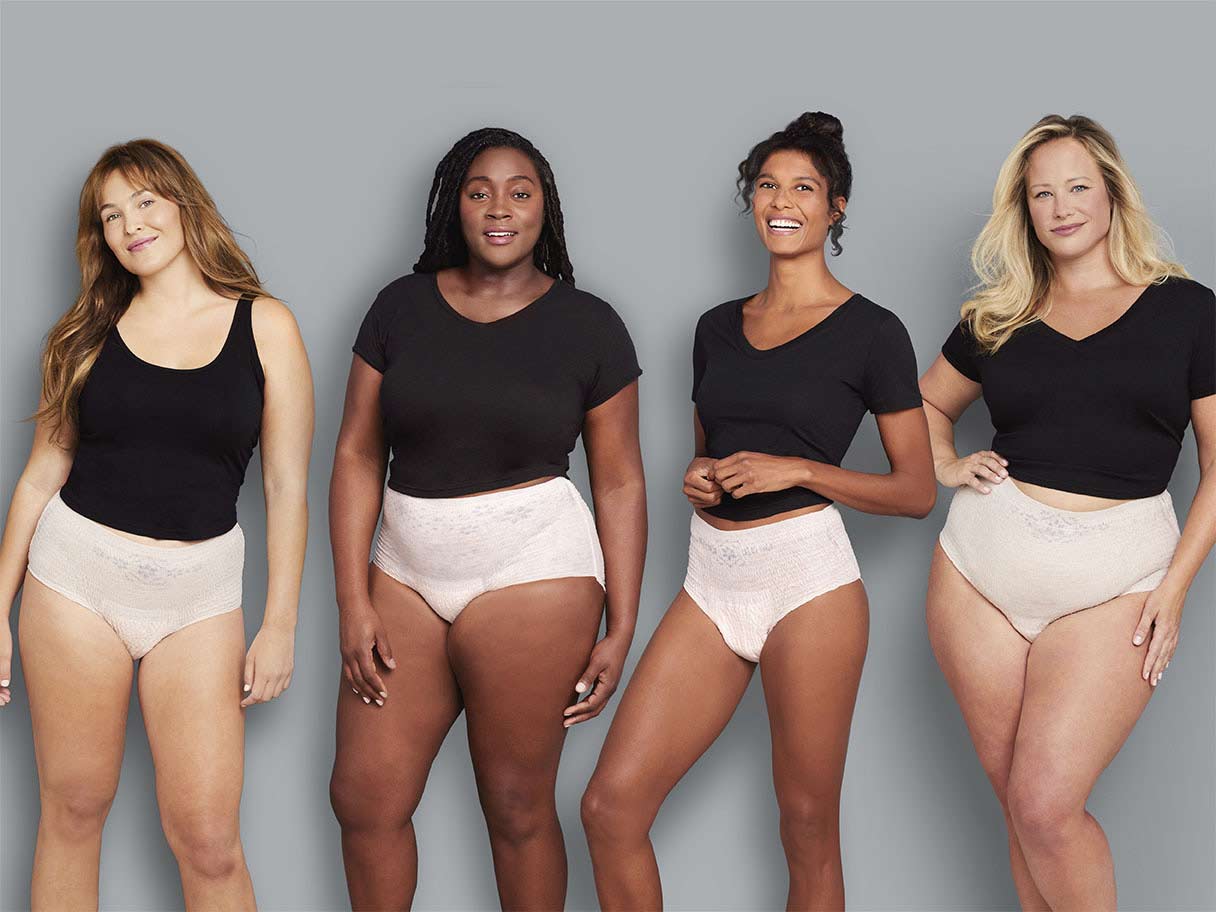Nutrition and Incontinence
Nutrition and Incontinence
By Teri Brown
Evelyn from Demopolis, Ala., dreamed of being an elementary teacher, but was self-conscious of standing in front of a classroom of students with her bladder control problem. "I delayed going to work because I was embarrassed and afraid I would have a problem at work," she says. "At times, my incontinence was great enough that a pad often did not contain it."
Like many women, Evelyn had her first experience with bladder leakage shortly after her children were born. After four children in four years, her pelvic floor muscles were weakened, and she was about 40 pounds overweight. Soon her incontinence was having a negative impact on her social life. "My bladder leakage caused me to not go out much," says Evelyn.
Like many others who deal with incontinence, Evelyn had difficulty discussing the issue with her healthcare provider. "I didn't talk to my doctor about it for a couple of years," she says. "I was too embarrassed to ask him about it, and I felt there probably wasn't anything to do about it anyway."
Similar to Evelyn, many people dealing with incontinence assume nothing can be done or are reluctant to talk to a doctor about it. Simple modifications, such as minor dietary changes or losing weight, could have a big impact on urinary incontinence.
The (Over) Weight Factor
According to Diane Newman, nurse practitioner for the Penn Center for Continence and Pelvic Health, director of the Incontinence Center at www.seekwellness.com and author of the book, The Urinary Incontinence Sourcebook (McGraw-Hill/Contemporary Books, 1999) incontinence, diet and obesity are closely linked. "Obesity has been shown to be a risk factor for SUI (stress urinary incontinence) in women," says Newman. "SUI in overweight patients may be caused by increased pressure on the bladder."
Evelyn decided to discuss her incontinence with a few close acquaintances who convinced her to talk with her doctor. Once she did, she realized she no longer had to suffer in silence, and together they created a treatment plan. Evelyn’s treatment plan included wearing absorbent products to manage her bladder control, as well as a simple surgical procedure. But her doctor advised her that unless she lost 25 pounds, the surgery wouldn't help significantly.
Excessive weight also can contribute to incontinence by adding pressure to the abdominal area. A five to ten percent weight loss can help relieve the added pressure and aid in controlling your incontinence. Evelyn joined a weight loss group and soon took off the extra weight. "I did not get relief from the incontinence until I lost the weight," says Evelyn. "My doctor was right."
Losing weight is not a quick solution. Knowing how much weight to lose and how to lose it requires developing and maintaining healthy, life-long eating habits, not quick-fix solutions. Healthy diet solutions (like Weight Watchers, for instance) can teach participants how to eat right and lose weight in a sensible manner. But if you’re strapped for time and money, simply knowing how much of which foods to eat can go a long way. Using free websites like http://www.choosemyplate.gov and http://www.fruitsandveggiesmatter.gov/ can help you formulate a healthy plan on your own. The CDC generally recommends a 1600 calorie diet for women age 65 (400 calories less than their male counterparts at that age). In the end, weight loss boils down to a simple calculation of consuming fewer calories than you burn at the end of the day, and that equation can be changed significantly with the addition of any exercise into your program. But before beginning any weight loss program, whether on your own or in a formal setting, it’s important to consult your physician first.
Foods to Avoid
In addition to weight management, the types of foods you eat also may impact your bladder leakage. For example, caffeine consumption can irritate the bladder and, since it is a diuretic, cause the bladder to contract, contributing to both stress and urge incontinence. According to Newman, more than 80 percent of the U.S. adult population consumes caffeine in the form of coffee, tea or soft drinks on a daily basis.
Experts from Mayo Clinic recommend consuming no more than 500-600 mg of caffeine per day. That’s the equivalent of about five 8-oz. cups of your own plain, brewed coffee from home. But if you have incontinence, cutting down on that amount can make a big difference. "A person suffering from incontinence should switch to caffeine-free beverages and foods or eliminate them and see if their urgency and frequency decrease," says Newman. "My recommendation is to drink no more than two cups of caffeinated drinks per day."
To reduce or eliminate caffeine from your diet, check the labels of products in your pantry. Caffeine occurs naturally in coffee beans, tea leaves and cocoa beans. It is also found in liquids such as sodas, and foods and candy that contain milk chocolate or cocoa. Furthermore, some over-the-counter medications such as pain relievers, cough medication and nutritional supplements can also contain caffeine. For a more complete listing of caffeinated foods and drinks, click on http://www.mayoclinic.com/health/caffeine/AN01211.
In addition to caffeine, the following foods could aggravate incontinence in some people:
- Alcoholic beverages
- Citrus fruits and juices
- Tomatoes and tomato-based foods
- Spicy foods
- Carbonated beverages
- Chocolate
Discussing your diet with your doctor can be very important. "We have found at our institute that patients can frequently make a difference in their urinary leakage by modifying their diets," says Dr. Ted Benderev, a urologist at The Incontinence and Pelvic Support Institute in Mission Viejo, Calif. "This relatively simple change in diet can be particularly helpful in those cases where medicines are not enough."
Fibers and Fluids
Constipation also can aggravate incontinence. If constipation is a problem, adding more fiber to your diet could help reduce constipation and ultimately reduce incontinence. How much fiber should you be getting in your diet? It’s all a function of how many total calories you eat each day. Generally recommended fiber amounts for women is 21 to 25 grams per day. You can increase your fiber intake by consuming more fiber-rich foods (click on http://www.mayoclinic.com/health/high-fiber-foods/NU00582 for a list) eating processed foods rich in bran (examples include All-Bran® products and new Fiber-One® products) using a bran supplement (like Metamucil® or Benefiber®) or, Newman recommends the use of whole, unprocessed coarse wheat bran. This is not the same type of bran as those commercial bran cereals you find on the shelves of your grocery store. This form of bran can be purchased inexpensively at health food stores or local grocery stores. Newman advises using bran in small amounts when you first begin.
Drinking plenty of water is another important dietary component. Many people with incontinence are under the impression that drinking less fluid will result in less incontinence. In reality, the opposite may be true. Decreased fluids can lead to constipation, which could contribute to incontinence. Also, when you drink less water, your urine is more concentrated and may irritate the lining of the urethra and bladder. Drink at least 50 ounces (six to seven 8-ounce glasses) of water throughout the day to keep the bladder healthy. If you're concerned about bladder leakage, try tracking your fluid intake and trips to the bathroom with an incontinence diary, which allows you to measure the fluid intake and output for a given day.
Many of these dietary changes can be done gradually, allowing you to track your progress. The key is to stick with it. Newman suggests that an overweight person should visit a healthcare provide to create a healthy diet plan that works for them since losing weight and maintaining weight loss are extremely difficult, as Evelyn discovered. After putting the weight back on, her incontinence problem resurfaced. "I am currently working on the weight loss again," Evelyn says. "I'm determined to lose weight to help with the incontinence."








